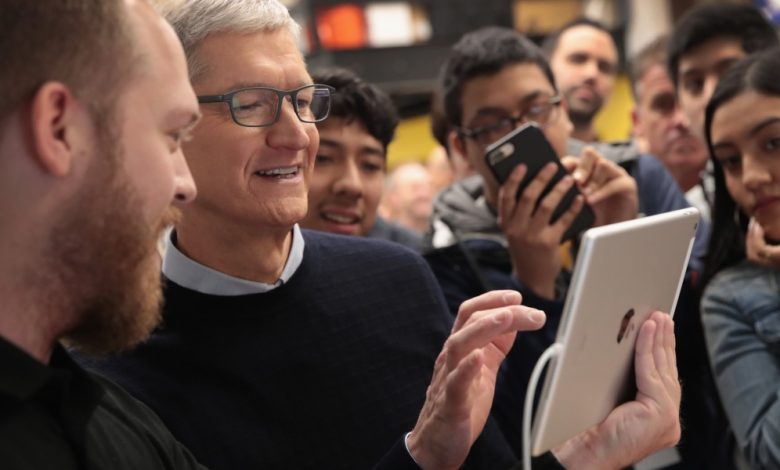Apple allows third-party app stores for iPhone and iPad in Europe

Apple’s all-powerful App Store, which dictates what apps users can download on their iPhone and has been criticized by everyone from Elon Musk to Mark Zuckerberg, is giving up some of its power.
According to a report, the company is taking steps to relax its control over apps on iPhones and iPads by allowing users in Europe to “sideload” software through independent third-party app stores. Bloomberg on Tuesday, citing anonymous sources.
The move, if Apple goes through with it, would mean a major shift in the company’s business practices and a surprise concession to European market regulators, who have passed a raft of new laws to curb the power of tech giants like Apple.
Just a few weeks ago, Twitter CEO Elon Musk publicly attacked Apple’s App Store policies, which give Apple unique control over the apps users can download to their devices (as opposed to Android, which allows users to download apps from page load) and requiring companies to pay Apple gets up to 30% of all revenue generated through its iPhone apps. Musk later claimed he met with Apple CEO Tim Cook and resolved a “misunderstanding” about Apple possibly removing Twitter from its App Store.
However, the potential change in Apple’s App Store rules in Europe appears to be the result of pressure not from the second richest person in the world, but from European Union authorities.
The EU’s Digital Markets Act (DMA), which will come into force in the coming months, is intended to open up digital platforms to more competition. It will give users more leeway to change the default settings and, as in Apple’s case, allow for in-app purchases without it taking part of the payments.
According to Bloomberg, Apple engineers and service workers are working on changes that would open iPhone and iPad software to apps sourced from third-party app stores, and plans to roll out the changes next year with iOS 17. It’s unclear if the changes will only be available in the EU, or if Apple might open up its rules on app stores globally. Apple has long resisted allowing users to sideload apps onto its devices, arguing that its role as “gatekeeper” is necessary for security reasons.
Apple didn’t come back assets Request for comments.
Apps from Tinder and Hinge from Match Group to Spotify are currently subject to commissions from Apple. Typically, these commissions range from 15% to 30%. Nearly $10 billion worth of transactions were processed through the App Store last year alone, according to data cited by Sensor Tower Reuters.
The EU has threatened companies for repeated violations of the DMA with fines of up to 20% of their global annual sales, which could amount to $80 billion for Apple. Companies must comply with the DMA by 2024.
Apple’s plans could boost sales of app stores for other platforms like Microsoft, Meta Platforms, and Amazon.com, which have their own versions of app stores.
Apple is reportedly working on other changes, including features in its devices that third-party apps can access in limited capacity and functionality of its Find My network tool Bloomberg.
This isn’t the first time Apple has complied with EU laws. The company announced that it is testing the USB-C connector instead of the Lightning connector for its next-generation iPhone in 2023, also in accordance with EU regulations.
Our new weekly Impact Report newsletter explores how ESG news and trends are shaping the roles and responsibilities of today’s leaders. Subscribe here.



